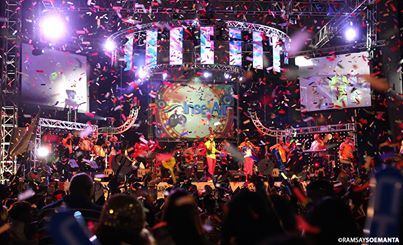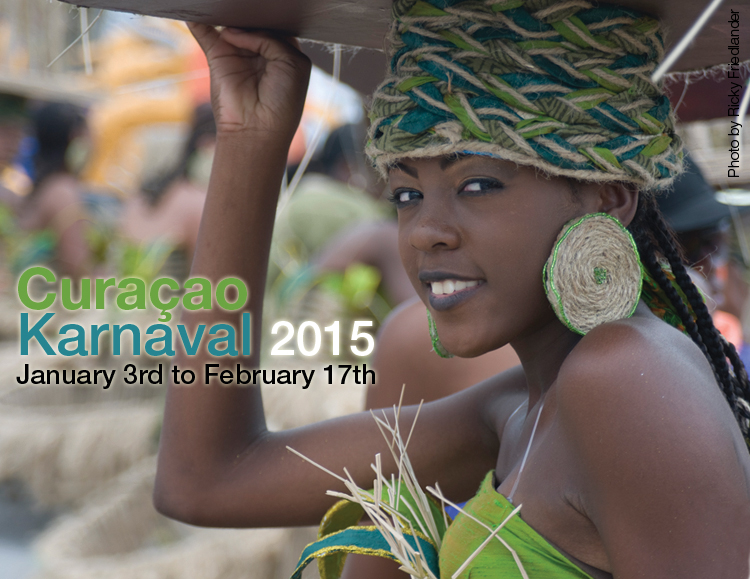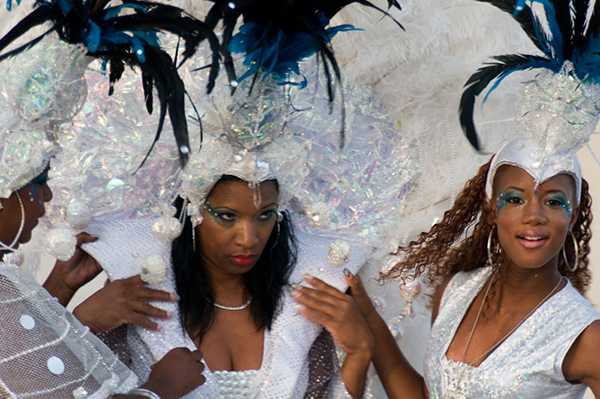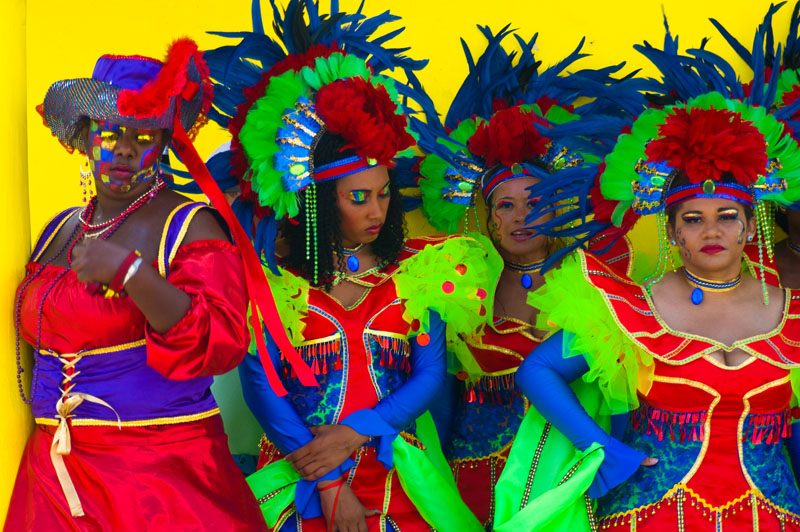
Derived from the word ‘‘tambu", or Spanish for drum, Tumba is to Curaçao what merengue is to the Dominican Republic, calypso is to Trinidad and reggae is to Jamaica.
A musical mélange of African origin, Tumba was introduced to Curaçao in the 17th century and is known as the “Curaçao blues” because it was first sung by women slaves as a way to express their pain and sadness, although today both male and female singers perform the Tumba tunes they learned as youngsters. “Tumba is an irresistible dance rhythm with lyrics often humorous, tongue-in-cheek, wry or critical of people or events, “ says Scott Rollins, owner of Otrabanda Records, a record label and music publishing company, “its unique rhythm and tradition of protest has proven to be the quintessential vehicle for expressing what Curaçaoans think and feel.”

The signature sound of the Curaçao Carnival, Tumba is also the island’s most popular dance beat with clubs, bars car radios blaring Tumba tunes at every turn. “A corner of the Netherlands Antilles explodes with color during the annual Carnival, “ adds Rollins “ the vibrant mix of Dutch, Jewish, Portuguese, African and South American cultures makes for a spirited Carnival party. “
Although the main instrument is the drum, a piece of iron known as an ‘agan’ is in the musical recipe with rattlers, cowbells and flutes also carrying the infectious tempos and high-octane beats. The soundtrack of every party in town, Tumba is accompanied by hand-clapping, toe-tapping and a traditional African dance style that is distinctive with risqué hip gyrations although no physical touching is allowed.
In 1971, Tumba was selected as the official music of the Carnival Road March and the inimitable brand at the Tumba Festival, a four-day musical bonanza staged during Carnival. Musicians vying for the prestigious title of King or Queen of Tumba compete vigorously for the honor of participating in the Grand Parade when spectators line the streets groovin’ to the island rhythms.
For the younger set, a separate category for children and teenagers gives aspiring singers the opportunity to strut their stuff while learning about Curaçao’s rich musical tradition. “Carnival means bonding with family, friends and always lots of dancing to our favorite Tumba music,” smiles Andre Rojer, Curaçao Tourist Board, “Because we all come from so many different cultures and backgrounds, Carnival gives us a way to celebrate our common ground. It’s when we let loose after working hard all year.”















No Comment